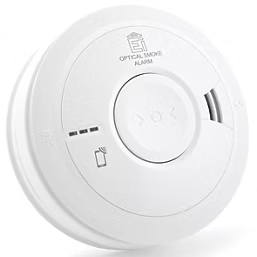Alarm Repairs
Our 24-hour Alarm Engineer Service to Ensure Your Security
Alarm Repairs Are Essential for Fire, Security, and Carbon Monoxide Systems
Alarms are essential for the safety and security of your home or business. Fire alarms, security systems, and carbon monoxide detectors protect your family, employees, and property. However, like any equipment, these devices can face issues that require professional repairs to ensure they function optimally. In this post, we’ll explore common problems with alarms, why repairs should always be handled by professionals, and how regular maintenance can prevent larger issues.
Fire Alarms: Common Issues and Professional Alarm Repairs
Common Issues:
False Alarms: Often caused by dust, insects, or improper installation. Dead or Low Batteries: A simple issue, but if ignored, it can lead to a non-functional alarm. Wiring Issues: Faulty wiring can prevent alarms from activating in case of an emergency. Malfunctioning Sensors: If the sensors are clogged or damaged, they may not detect smoke or fire accurately. Why Professional Repairs are Necessary: Professional alarm repair technician has the training to identify the root cause of these issues and perform repairs safely. This includes re-wiring, sensor recalibration, or replacing damaged components, ensuring your fire alarm functions at its best.

Security Alarms: Keeping Your Property Safe
Security alarm systems are designed to protect against burglary, break-ins, and other security threats. When these systems fail, your property is vulnerable.
- Common Issues:
- Faulty Sensors: Motion detectors or door/window sensors that fail to activate.
- Power Failures: Power surges or outages can affect the functioning of the security system.
- Connectivity Problems: Issues with wireless systems or faulty communication between the control panel and sensors.
- Why Alarm Repairs are Necessary: Security systems require precise calibration and connection, and incorrect fixes could leave vulnerabilities in the system. A professional technician can restore your system to full functionality, ensuring it provides the necessary protection for your property.
Carbon Monoxide Alarms: Life-Saving Technology
Carbon monoxide detectors are a life-saving technology that can alert you to dangerous gas levels before they reach harmful concentrations. Because carbon monoxide is colorless, odorless, and deadly, these alarms need to be in top working order.
- Common Issues:
- Battery Failure: Low or dead batteries will prevent the alarm from going off in an emergency.
- Sensor Malfunction: If the sensor is faulty, it may fail to detect carbon monoxide properly.
- Location Problems: Improper placement of the detector can lead to inaccurate readings.
- Why Professional Repairs are Necessary: Since carbon monoxide can be fatal, you can’t afford any mistakes in the detection process. A certified technician can ensure that your carbon monoxide detectors are properly installed, calibrated, and functioning correctly.
The Importance of Regular Maintenance
Routine testing and maintenance of fire alarms, security alarms, and carbon monoxide detectors are essential in preventing failure. Here’s why:
- Detect Potential Issues Early: Regular maintenance helps identify issues like low batteries, sensor malfunction, or wiring problems before they become critical.
- Extend the Lifespan of Your System: With proper care, your alarm systems can last longer and continue to protect you effectively.
- Stay Compliant with Regulations: For businesses, maintaining fire alarms and security systems is often required by law or insurance companies.
When will you require a alarm repair?
If you notice any of the following issues with your alarms, it’s time to contact a professional alarm repair service:
- Constant false alarms or a non-responsive system.
- Alarms that do not sound when triggered by smoke, motion, or carbon monoxide.
- Alarms that are outdated or non-compliant with current safety standards.
Smoke Detector Alarm Servicing, Repairs, and Common Faults: What You Need to Know
False alarms can be triggered for a variety of reasons, causing unnecessary panic and frustration. Common causes include:
Smoke detectors are one of the most critical components of fire safety in both homes and businesses. They alert you to potential fire hazards, giving you the precious time needed to escape or take action. However, like any electronic device, smoke detectors can develop faults over time. Proper servicing and timely repairs are essential to ensure your smoke detectors are always functioning properly. In this post, we’ll explore common smoke detector issues, when repairs are necessary, and the importance of professional servicing.
Common Faults with Smoke Detectors
1. False Alarms
4. End of Life
- Dust and Debris: Dust, cobwebs, or insects can block the sensor and cause a false reading.
- Steam and Cooking Fumes: Cooking smoke or steam from the bathroom can sometimes trigger the alarm.
- Improper Placement: Smoke detectors placed too close to kitchens or bathrooms are more likely to be triggered by steam or cooking smoke.
Why It Happens:
When your smoke detector is too sensitive or installed in the wrong location, it may mistakenly register everyday occurrences as potential fire hazards.
How to Fix It:
A professional technician can clean the sensors, reposition the detector to an ideal location, and adjust the sensitivity if necessary.
2. Low Battery Warning
One of the most common faults with smoke detectors is a low battery. Many models emit a series of beeps when the battery level is low, often at night when you least expect it.

Why It Happens:
Smoke detectors rely on batteries to function properly. Over time, the battery charge weakens and will need replacing.
How to Fix It:
While it’s simple to change the batteries in most smoke detectors, it’s important to replace them regularly, typically every 6 months. Professional servicing can ensure the right battery is used and that it’s installed correctly.
3. Smoke Detector Not Going Off
A smoke detector that fails to activate in the presence of smoke is one of the most serious faults, as it can delay your ability to respond to a fire.
Why It Happens:
- Dirty Sensors: Smoke detectors may become clogged with dust or debris, causing the sensor to fail.
- Worn-out Sensors: Over time, the internal components may become less sensitive.
- Electrical Issues: If your smoke detector is wired into your electrical system, wiring problems or power surges may disrupt its function.
How to Fix It:
If your smoke detector is hardwired, a technician will need to inspect the wiring for faults. If the issue is related to the sensor, a replacement or cleaning may be necessary.
Smoke detectors have a limited lifespan, usually between 8 to 10 years. After this period, the internal sensors begin to degrade, and the device will no longer function as intended.
Why It Happens:
As a smoke detector ages, its components wear out, and its ability to detect smoke diminishes.
How to Fix It:
If your smoke detector has reached the end of its life, it’s essential to replace it with a new unit. A professional technician can help you select the right smoke detector and install it correctly.
5. Intermittent Chirping or Beeping
An intermittent beep or chirp can be a sign of several issues. This is different from the continuous alarm that sounds in the presence of smoke. Intermittent chirping is often a sign that something is wrong.
Why It Happens:
- Low Battery: This is often the most common cause. It may chirp every few minutes to signal the need for a battery replacement.
- Internal Faults: A malfunction within the smoke detector’s components, such as a faulty circuit board or sensor, could also cause this behavior.
How to Fix It:
First, check and replace the batteries. If the chirping persists, it may be time for a professional inspection to check for internal faults or wiring issues.
How to Properly Service Your Smoke Detectors
To ensure your smoke detectors are always ready to alert you in the event of a fire, regular servicing is essential. Here’s a basic guide for smoke detector maintenance:
- Monthly Test: Press the test button to ensure the alarm is working. The sound should be loud and clear. If you hear nothing, replace the battery or inspect the unit for faults.
- Clean Regularly: Dust and dirt can accumulate inside the unit, affecting its functionality. Clean your smoke detector every 6 months using a vacuum cleaner or a soft cloth.
- Replace Batteries: Even if the detector is still working, replace the batteries every 6 months to ensure it always functions correctly.
- Professional Servicing: Schedule professional servicing every 1-2 years. A technician can clean the sensors, check for faults, and perform a full system check to ensure everything is in working order.
Why Professional Repairs Are Essential
While some basic maintenance tasks like battery replacement or cleaning can be done by homeowners, there are several reasons why professional servicing is necessary:
- Expert Diagnosis: Smoke detectors are delicate electronic devices, and diagnosing internal faults can be challenging without proper knowledge and tools.
- Ensuring Code Compliance: Some regions have specific regulations regarding smoke detectors. A professional can ensure your system complies with local fire safety codes.
- Replacing Older Units: As smoke detectors reach the end of their lifespan, it’s important to replace them with the latest models. A professional can advise you on the best replacement options.
- Safety Concerns: Improperly installed or faulty smoke detectors can pose a risk to your safety. Professionals can install, repair, and service your units safely.

Smoke detectors are crucial to your safety, and ensuring they’re in top working order is essential. Regular maintenance, timely repairs, and professional servicing can help ensure that your smoke detectors function as they should when you need them most. If you notice any of the issues listed above, don’t hesitate to call a professional to inspect, repair, or replace your smoke detectors. Safety should always come first!
Sorry, the comment form is closed at this time.





